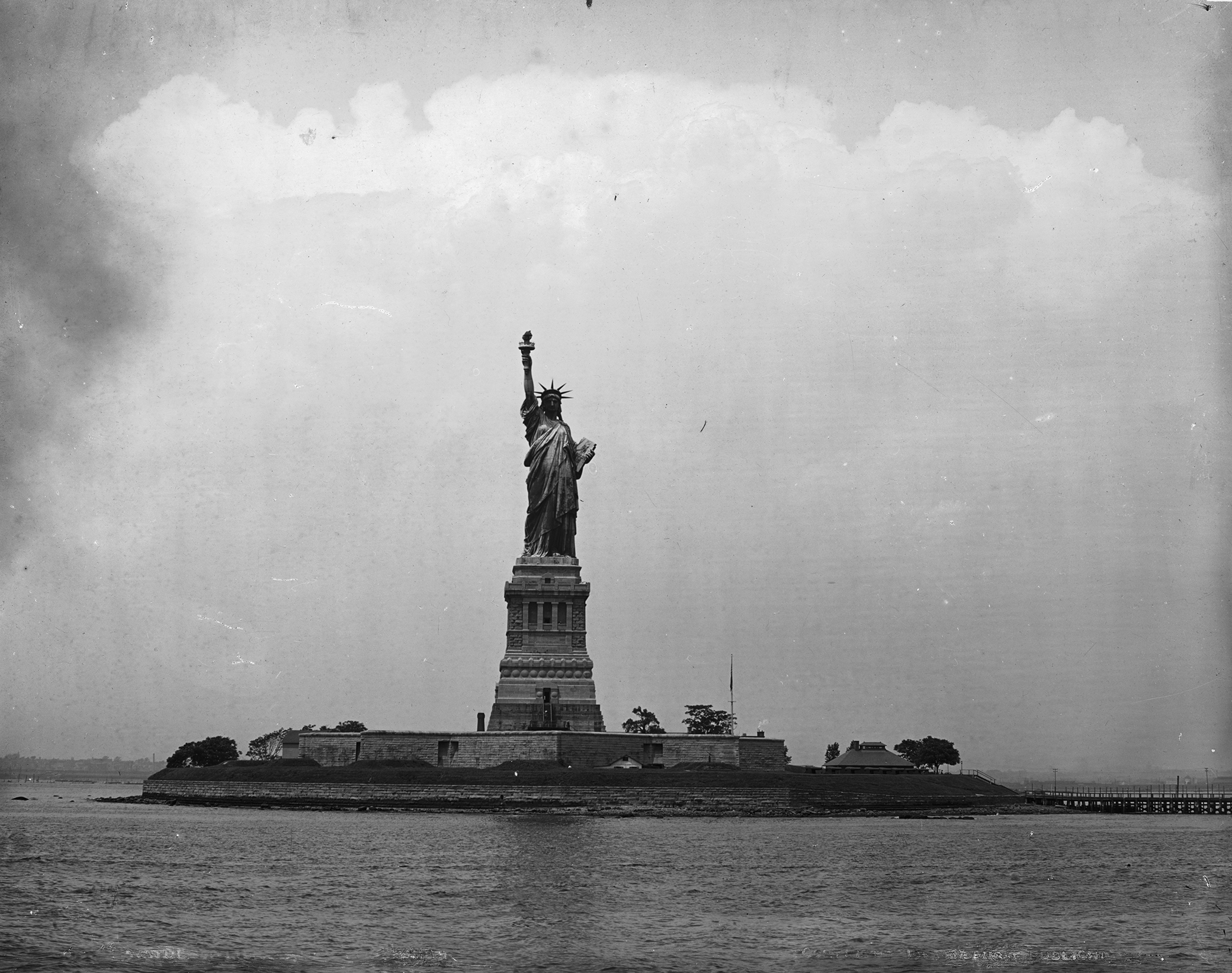
Statue of Liberty, c. 1905. Library of Congress, Prints and Photographs Division.
• Five of the sixteen Dead Sea Scroll fragments at the Museum of the Bible are fake and have been removed from display. (NPR)
• Eric Foner on Frederick Douglass: “Let me begin on a personal note. Over half a century ago, my uncle, the historian Philip S. Foner, rescued Frederick Douglass from undeserved obscurity.” (The Nation)
• Visiting a museum dedicated to Joseph Stalin’s printing press. (Popula)
• Scientists sifting through the rubble of the National Museum of Brazil have found the skull from one of the oldest sets of human remains in the Americas, which offers “a glimmer of hope that more treasures may be recovered from the remains of the museum.” (Science)
• On Mother Shipton, “Yorkshire’s answer to Nostradamus.” (The Public Domain Review)
• An interview with Simone de Beauvoir from 1959. (Aeon)
• The letters that Sylvia Plath wrote to a psychiatrist in Boston: “Plath wrote her last letter to Barnhouse on February 4, 1963. For some reason, it was not mailed until February 8. Plath committed suicide on the morning of February 11. Barnhouse did not receive the letter until after Plath died. In it, Plath confessed that, for the first time in years, ‘the madness’ had returned.” (Literary Hub)
• Looking back on the day that the Statue of Liberty was dedicated: “The specter of rebellious freedom thus loomed over the festooned streets of New York on that day in October…The Russian expatriate Emma Goldman, who had arrived in America as a political exile in December 1885, captured the mood in her memoir. ‘Ah, there she was, the symbol of hope, of freedom, of opportunity!’ Goldman exclaimed upon first seeing the statue. ‘She held her torch high to light the way to the free country, the asylum for the oppressed of all lands.’ ” (Places Journal)
• Loving a “complicated man”: “Of all the ancient heroes, Odysseus is the one who seems most fitted to our modern sensibilities. In our world of desk jobs and degrees, we prefer brains to brawn, and Odysseus is the original brain. Most of us know we can’t be Achilles, that god-like specimen of physical perfection, but we all like to think we could be clever Odysseus, beating the odds with our wits. Odysseus also appeals to postmodern cynicism.” (The Times Literary Supplement)
• This week in obituaries: the inventor of green bean casserole, a resistance fighter who foiled Hitler’s hopes for an atomic bomb, a writer who created “poems as delicate and strong as spiders’ webs,” and the inventor of the Little Free Library.